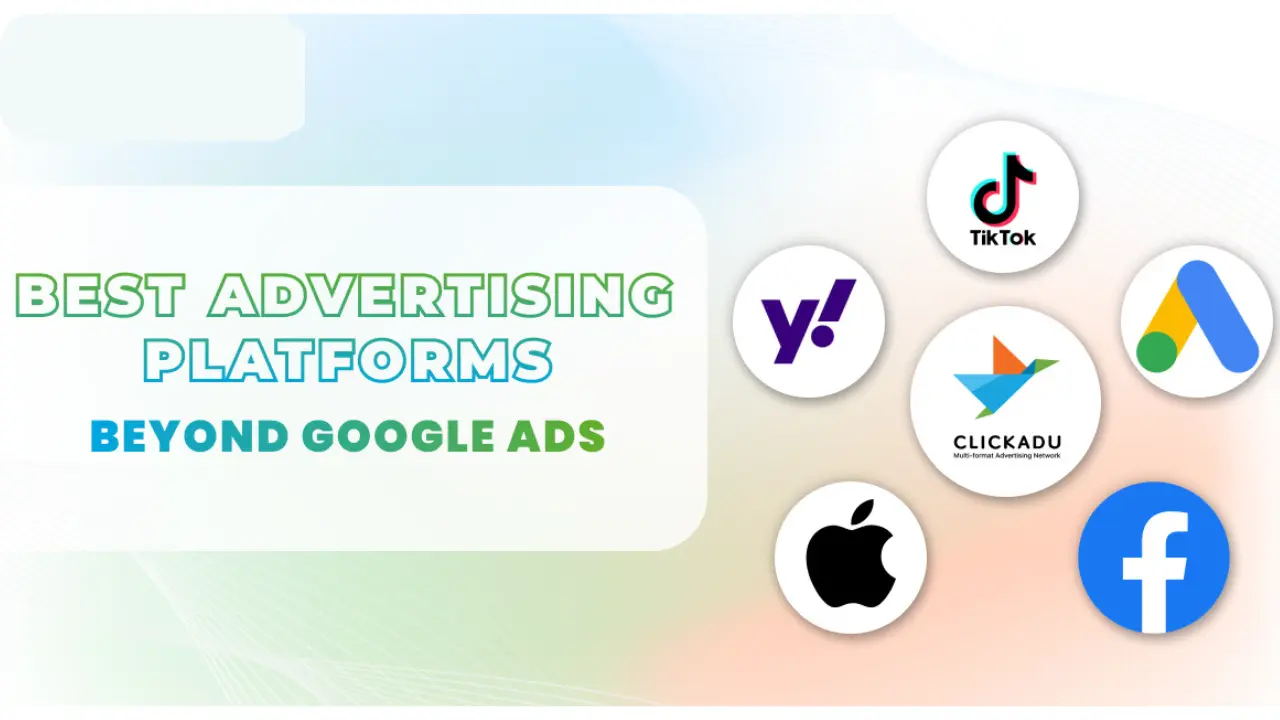Table of Contents
Best Alternatives for Ads in 2025 is the key topic that advertisers, marketers, and business owners must focus on as third-party cookies phase out. With evolving privacy regulations and major browsers dropping support, it’s crucial to explore future-proof advertising solutions that align with both user expectations and digital marketing goals.
What are the best alternatives for ads in 2025?
The best alternatives for ads in 2025 include first-party data strategies, contextual targeting, Google’s Privacy Sandbox, universal IDs, and consent-based advertising. These solutions ensure compliance with privacy laws while maintaining ad performance.
Why Third-Party Cookies Are Dying
Third-party cookies have long powered digital advertising, enabling cross-site tracking and retargeting. However, increasing concerns over user privacy, coupled with regulations like GDPR and CCPA, and browser updates from Chrome, Safari, and Firefox, are ending this era. Advertisers must now pivot towards alternatives that respect user privacy.
📉 Why Relying Only on Ads Isn’t Smart in 2025
While Google AdSense and display ads still work, relying on them as the only income source is increasingly risky. Ad blockers, low RPMs (especially in India), and stricter policies have made it harder for new publishers and bloggers to earn well from ads alone.
⚠️ Problem: You’re working hard for traffic but earning ₹5–₹30 per 1,000 views.
✅ Solution: Add multiple income streams that pay more and offer better control.
That’s why diversifying your monetization strategy is essential—and there are several ad-free (or low-ad) options that are more profitable, sustainable, and user-friendly.
🧠 Key Factors to Consider When Choosing Ad Alternatives
Before diving into options, ask:
- 🔍 Is it scalable?
- 💸 Does it pay better than display ads?
- 🤝 Does it build trust with users?
- 📈 Can it grow with your blog or audience?
Not all monetization methods are equal. Choose 2–3 that match your niche, traffic type, and content goals.
Best Alternatives for Ads in 2025: The Future of Digital Advertising
Let’s explore the most promising alternatives that will define ad strategies in 2025 and beyond:
✅ 1. First-Party Data Collection
First-party data refers to information collected directly from your audience via your website, app, or CRM. It is accurate, reliable, and privacy-compliant.
- Leverage email subscriptions, surveys, and loyalty programs.
- Invest in customer data platforms (CDPs) to unify and analyze data.
- Use data for personalization and segmentation.
✅ 2. Contextual Advertising
Contextual targeting matches ads to relevant content rather than individual users. This privacy-friendly method aligns ads with the page’s topic or keywords.
- Example: Showing sports gear ads on a sports blog.
- No dependency on personal data.
- High relevance = better engagement.
✅ 3. Google Privacy Sandbox
Google’s Privacy Sandbox initiative aims to develop privacy-preserving alternatives for ad targeting and measurement.
- Topics API for interest-based ads.
- FLEDGE for remarketing without cross-site tracking.
- Protected Audience API under testing.
✅ 4. Universal IDs
Universal ID solutions like Lotame Panorama ID or The Trade Desk’s Unified ID offer shared identifiers based on consented user data.
- Work across platforms and publishers.
- Respect user privacy and preferences.
- Help retain targeting accuracy post-cookies.
✅ 5. Consent-Based Advertising
Emphasizing transparency, consent-based advertising ensures users explicitly agree to data usage.
- Implement clear opt-in mechanisms (CMPs).
- Strengthen trust and loyalty.
- Stay compliant with global privacy laws.
6. Affiliate Marketing
Promote products/services and earn a commission per sale or action.
- 🛠 Platforms: Amazon Associates, Impact, ShareASale, Digistore24, Cuelinks
- 🔥 Tip: Use comparison posts, product reviews, tutorials
- 💰 Potential: ₹50 to ₹5,000+ per sale
7. Sponsored Posts
Get paid to publish content for a brand or product.
- 🤝 Ideal for: Bloggers with engaged audiences
- 💰 Payout: ₹500 to ₹10,000 per post (even more with domain authority)
- 🧠 Tip: Add a media kit and “Advertise” page
8. Info Products (Ebooks, Guides)
Package your expertise into ebooks, PDF checklists, or courses.
- 📚 Tools: Gumroad, Payhip, LearnDash (WordPress)
- 💡 Example: “Blog Monetization Blueprint for Beginners”
- 📈 Profit margin: Up to 90% (you keep most of the money)
9. Email Newsletters + Paid Subscriptions
Build a community around your niche and monetize via premium content.
- ✉️ Tools: Substack, ConvertKit, Beehiiv
- 💰 Model: Free newsletter + ₹200–₹500/month premium content
10. Freelance Services
Offer writing, SEO, web design, or consulting based on your niche.
- 🧠 Example: A blog about blogging can offer blog audits
- 💼 Platforms: LinkedIn, Fiverr, Upwork, your own site
11. YouTube Integration
Use your blog to grow a YouTube channel or vice versa.
- 🎥 Combine content: e.g., write blog + embed your own video
- 💰 Income: Ad revenue + sponsorships + affiliate deals
12. Online Courses
Teach in-demand skills related to your niche.
- 🧑🏫 Tools: Teachable, Kajabi, Graphy, Learnyst
- 💸 Potential: ₹499 to ₹9,999 per course
13. SaaS Affiliate Programs
Promote tools with recurring commissions.
- 🌟 Examples: Canva, SEMrush, Hostinger, ConvertKit
- 🔄 Get paid monthly for one-time referrals
14. Membership Communities
Create a paid community on Telegram, Discord, or Circle.
- 🧠 Value: Private webinars, templates, resources
- 💰 Charge: ₹99 to ₹999/month
15. Job Boards / Marketplaces
Set up niche job boards or offer digital templates.
- 💼 Examples: WordPress themes, resume templates, Notion dashboards
- 💵 One-time or recurring sales
🔢 Comparison Table: Ad Alternatives at a Glance
| Alternative | Privacy Compliance | Targeting Accuracy | Scalability |
|---|---|---|---|
| First-Party Data | High | High | Medium |
| Contextual Advertising | High | Medium | High |
| Google Privacy Sandbox | High | Medium | High |
| Universal IDs | High | High | Medium |
| Consent-Based Ads | Very High | Medium | Medium |
💡 Conclusion: Ads are easy to start, but the real money is in user-focused monetization.
How to Prepare Your Business for 2025
Adopting the best alternatives for ads in 2025 requires planning and execution:
- Audit your data sources: Ensure you’re collecting first-party data ethically and securely.
- Invest in technology: Adopt CDPs, consent management platforms, and contextual ad tools.
- Test new approaches: Run pilot campaigns using contextual and universal ID targeting.
- Train your team: Keep marketing teams updated on privacy-first strategies.
Read also
- 2025 SEO Trends: What Google’s New Algorithms Reward
- How Small Businesses Can Leverage AI for Marketing in 2025
Conclusion
The death of third-party cookies marks a significant shift in digital marketing. Embracing the best alternatives for ads in 2025 — including first-party data, contextual advertising, and Privacy Sandbox solutions — will not only help maintain performance but also build stronger, trust-based relationships with users. The future of advertising is privacy-first, and those who adapt will thrive.
FAQs
What are first-party data strategies?
First-party data strategies involve collecting and using data directly from your audience through owned channels like websites, apps, and CRM systems for marketing purposes.
Is contextual advertising effective without cookies?
Yes, contextual advertising is highly effective because it matches ads to relevant content rather than user data, ensuring privacy compliance while maintaining relevance.
What is Google’s Privacy Sandbox?
Google’s Privacy Sandbox is an initiative to create privacy-preserving technologies for digital ads, such as Topics API and FLEDGE, that reduce reliance on cross-site tracking.
Do universal IDs violate user privacy?
No. Reputable universal ID solutions operate with user consent and comply with privacy laws, offering a balance between ad targeting and data protection.
How can small businesses adapt to these changes?
Small businesses can focus on building first-party data, using contextual advertising, adopting consent management tools, and exploring universal ID solutions.






